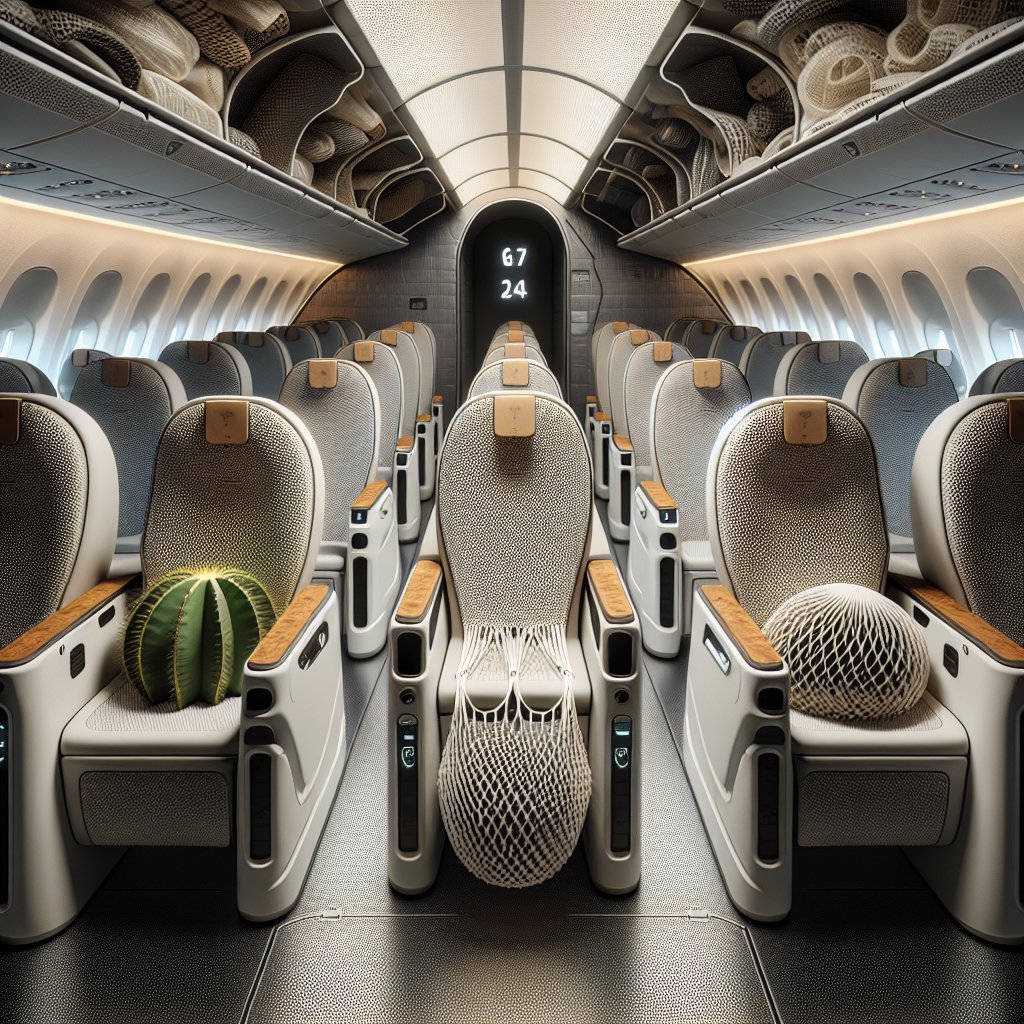Image created by AI
Innovative Plane Seats: The Future of Sustainable Air Travel
In a groundbreaking innovation that redefines the essence of sustainable air travel, German manufacturer Recaro Aircraft Seating has unveiled a new line of economy-class seats. Poised to transform the future of aircraft interiors, these eco-friendly seats are ingeniously crafted from unconventional materials like cactus skin and abandoned fishing nets. Revealed at the prestigious Singapore Airshow, these components showcase aviation's commitment to becoming a more sustainable mode of transportation.
Recaro's CEO Mark Hiller shared the intricate details of the product, which features recycled foam sourced from discarded mattresses, complementing the suite of sustainable materials. Mirroring the tactility and appearance of high-quality materials, the cactus skin utilized offers an eco-alternative to plastics or animal leathers, while armrests are composed of a blend of wood and cork compounds.
Sustainability doesn't come at the expense of functionality or performance; these innovative seats are designed to match, or even undercut, the weight of traditional seating. This is a crucial consideration, as any additional weight could result in increased fuel consumption, undermining the very purpose of their creation. Hiller emphasizes that sustainability has to be symbiotic with efficiency, noting, "Otherwise, it will not help.”
A mesh pocket, made from repurposed fish netting, adds a practical and visually tangible element to the overall design, allowing passengers to recognize the effort toward environmental stewardship. As part of its environmental strategy, Recaro asserts that a staggering 80% of the new seat's composition is derived from recycled materials, ensuring the entire unit is completely recyclable at the end of its life cycle.
Despite the innovative design, these sustainable seats are not yet available for commercial use. Hiller announced the anticipated commercial release within this year, with the first deliveries expected to furnish aircraft interiors by 2025 at the latest. However, certain elements still await certification before welcoming passengers aboard.
The global airline industry is not merely adopting these advancements as a symbolic gesture but is actively racing to meet stringent objectives, aiming to achieve carbon neutrality by the year 2050. Governments across the globe are ramping up the pressure to accelerate emission cuts, compelling the industry to explore and implement tangible, green solutions.
The Singapore Airshow highlighted the widespread sustainability challenges the aviation sector faces, a topic of critical importance among industry leaders and stakeholders. Sustainable aviation fuel (SAF), derived from waste oils or agricultural feedstock, emerged as the most impactful emissions-reduction tool. However, the current supply of SAF accounts for less than 1% of total requirements, signaling a need for expansive development in this area.
The venture embarked upon by Recaro, with a customer base that includes major airliners like Southwest Airlines Co and Air India, resonates as a bold leap towards eco-conscious air travel. In an age where sustainability is no longer a luxury but a necessity, such innovations could set the benchmark for eco-design in aviation, redefining the travel experience while safeguarding our planet.










